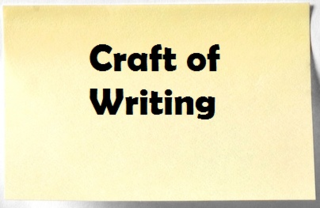Watch for consistency errors in your story
As a novelist  or short story writer, among your chief goals is to establish and maintain a fictional dream, which occurs when readers actually feel like they are experiencing what is being read. One way to achieve that is to establish consistency in your story.
or short story writer, among your chief goals is to establish and maintain a fictional dream, which occurs when readers actually feel like they are experiencing what is being read. One way to achieve that is to establish consistency in your story.
Consistency involves providing details that maintain readers’ illusion of being in a different world. A number of different writers have used different terms to explain consistency; among them is Ursula K. LeGuin’s “from Elfland to Poughkeepsie.”
Consistency is more than saying on one page that the sun rises in the north and then three pages later saying it rises in the south. While that inconsistency certainly would need to be corrected, you’ll want to think even deeper about your story.
For example, story details also can contradict one another because facts established in one part wouldn’t allow for facts presented later in the story to be true. In science fiction stories, this might occur when a civilization that’s suffered a global nuclear war is still capable of spaceflight. The odds are against this occurring, because the infrastructure to support spaceflight (the manufacturing of space parts and ship fuel) and the launch facilities probably wouldn’t exist if the war destroyed cities.
When writing your story, watch for these common consistency errors:
g Inadequate background – Characters should have the experience to possess certain knowledge or to solve certain problems. For example, would someone who has never picked up a gun in his life know how to aim and fire it let alone hit the target?
g Excessive luck/coincidence – The main character should be able to resolve the story’s problem not because they got lucky but because of their skills, talents and grit.
g Insufficient background motivation – For a character to be in a situation or to make a decision, they must have experienced something in their past that allows them to be involved. A teenage boy shouldn’t know the correct strategy to win a war, for example – but he might if he were a history buff and his father had served as a military officer.
Need an editor? Having your book, business document or academic paper proofread or edited before submitting it can prove invaluable. In an economic climate where you face heavy competition, your writing needs a second eye to give you the edge. I can provide that second eye.
Related articles
 Maintain 'fictional dream' when penning novel
Maintain 'fictional dream' when penning novel 'Murder your darlings' to better engage readers
'Murder your darlings' to better engage readers Novelists must create 'fictional dream'
Novelists must create 'fictional dream' Delete bookisms in your story's dialogue
Delete bookisms in your story's dialogue Common 'first draft-itis' symptoms to look for
Common 'first draft-itis' symptoms to look for



